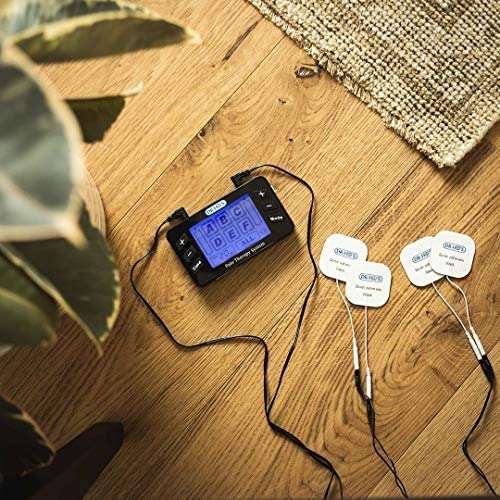There are many different approaches to psychotherapy. Some therapists identify with a particular approach or orientation while others draw from a variety of different approaches. Cognitive-behavioral therapy (CBT) is one specific orientation of psychotherapy that seeks to help people change how they think.
Cognitive-Behavioral Therapy
Cognitive-behavioral therapy is based on cognitive theory and was developed by Aaron Beck for anxiety and depression. CBT is a blend of cognitive and behavioral therapies that help patients tune into their internal dialogue in order to change maladaptive thinking patterns.
Beck developed specific procedures to help challenge a depressive client’s assumptions and beliefs and help patients learn how to change their thinking to be more realistic and thus lead to feeling better. There is also an emphasis on problem-solving and changing behaviors and clients are encouraged to take an active role in their therapy.
Other Types of Cognitive-Behavioral Therapy
One type of CBT is rational emotive behavior therapy (REBT), which was developed by Albert Ellis. Ellis considers strong emotions to result from an interaction between events in the environment and our beliefs and expectations. Some of these beliefs can be too strong or rigid.
For example, maintaining a belief that everyone should like you. With REBT, you would learn to change that belief so that it is less extreme and less likely to interfere with your life. Your belief could then change to wanting people to like you but realizing that not everyone will.
Another form of CBT is dialectical behavior therapy (DBT), which was developed by Marsha Linehan primarily to be used for patients with borderline personality disorder (BPD). DBT emphasizes working on accepting thoughts and feelings instead of trying to fight them. The goal is to get patients to accept their thoughts and feelings so that they can eventually change them.
Exposure and response prevention therapy (ERP) is yet another type of CBT that is usually used for obsessive-compulsive disorder (OCD). In this therapy, patients are exposed to the situations or objects that cause them the most fear (obsessions) but are not able to engage in the behaviors that help relieve the anxiety they feel (compulsions).
For example, if you are afraid of germs, during ERP, your therapist might have you touch money and then not wash your hands for a specific amount of time. Practicing this over and over helps you gain confidence in dealing with the accompanying anxiety and can greatly help relieve symptoms of OCD with repeated exposure.
Does CBT Work for Depression?
It has been difficult to research the effectiveness of psychotherapy since the term can refer to so many different activities. Cognitive-behavioral therapy, however, lends itself well to research and has been scientifically proven to be effective in treating symptoms of depression and anxiety.
It tends to be short- to moderate-term, in contrast to some other orientations because of its focus on the present, as well as on problem-solving. Its mission to educate the patient to learn to become their own therapist also makes it a long-term treatment.
Medications or Psychotherapy?
Depression and anxiety can be treated with medications, psychotherapy or both. Some research has shown that the combination of medications and therapy can be particularly effective.
Insurance companies sometimes encourage family doctors to prescribe medications rather than refer to a mental health professional for psychotherapy. There are times when this may be appropriate, but there are other times when psychotherapy is clearly indicated.
If you are taking an antidepressant or an anxiety medication and you believe that part of the problem is not being addressed, consider seeking help from a mental health professional.
A Word From Verywell
If you’re interested in trying cognitive behavioral therapy, you might talk to your physician. Your doctor may be able to refer you to a therapist, or you can use an online directory or look for a therapist online.
Keep in mind that not all therapists use cognitive behavioral therapy, so it’s important to ask what type of therapy they use prior to setting up your first appointment.

Share on Pinterest
Stefa Nikolic/Getty Images
Cognitive behavioral therapy (CBT) is a type of psychotherapy. This form of therapy modifies thought patterns to help change moods and behaviors.
It’s based on the idea that negative actions or feelings are the results of current distorted beliefs or thoughts, not unconscious forces from the past.
CBT is a blend of cognitive therapy and behavioral therapy. Cognitive therapy focuses on your moods and thoughts. Behavioral therapy specifically targets actions and behaviors.
A therapist practicing the combined approach of CBT works with you in an agreed-upon location, offering guidance and direction. You and your therapist may work to identify specific negative thought patterns and behavioral responses to challenging or stressful situations.
This type of therapy is commonly used for a wide range of mental health challenges and diagnoses, including:
- depression
- anxiety
- eating disorders
- post-traumatic stress disorder (PTSD)
- insomnia
- obsessive-compulsive disorder (OCD)
- bipolar disorder
- phobias
- chronic pain
- panic attacks
Treatment typically involves developing more balanced and constructive ways to respond to stressors. Ideally, these new responses will help you cope with or recover from challenging mental health conditions or unwanted behaviors.
The principles of CBT can be applied outside of the therapist’s office, providing you with coping tools to help you through life’s challenges. CBT teaches you to become aware of and adjust negative patterns, which can help you reframe your thinking during moments of heightened anxiety or panic.
It can also provide new coping skills, like meditation or journaling, for those struggling with a substance use disorder or depression.
How does CBT work?
CBT is a more short-term approach than psychoanalysis and psychodynamic therapies. Other types of therapies may require several years for discovery and treatment.
CBT often requires only up to 20 sessions, according to the National Health Services, but you can continue seeing your therapist for as long as you need. Every situation is unique, so how long you pursue treatment is up to you and your therapist.
CBT sessions provide opportunities to identify current life situations that may be causing or contributing to your mental health conditions, like anxiety or depression. CBT allows you and your therapist to identify patterns of thinking or distorted perceptions that are no longer serving you.
This is different from psychoanalysis. This type of therapy involves working backward through your life history to discover an unconscious source of the problems you’re facing.
You may be asked to keep a journal as part of CBT. The journal provides a place for you to record life events and your reactions. Your therapist can help you break down reactions and thought patterns into several categories of self-defeating thought (also known as cognitive distortions).
These may include:
- all-or-nothing thinking: viewing the world in absolute, black-and-white terms
- disqualifying the positive: rejecting positive experiences by insisting they “don’t count” for some reason
- automatic negative reactions: having habitual, scolding thoughts
- magnifying or minimizing the importance of an event: making a bigger deal about a specific event or moment
- overgeneralization: drawing overly broad conclusions from a single event
- personalization: taking things too personally or feeling actions are specifically directed at you
- mental filter: picking out a single negative detail and dwelling on it exclusively so that the vision of reality becomes darkened
You and your therapist can also use the journal to help replace negative thought patterns or perceptions with more constructive ones. This can be done through a series of well-practiced techniques, such as:
- learning to manage and modify distorted thoughts and reactions
- learning to accurately and comprehensively assess external situations and reactions or emotional behavior
- practicing self-talk that is accurate and balanced
- using self-evaluation to reflect and respond appropriately
You can practice these coping methods on your own or with your therapist. Alternately, you can practice them in controlled settings in which you’re confronted with challenges. You can use these settings to build on your ability to respond successfully.
How can CBT help with depression?
If you’re someone who struggles with depression, your therapist may use CBT techniques to help you uncover unhealthy patterns of thought and identify how they may be affecting:
- your mood
- beliefs about yourself
- your overall outlook on life
You may also be assigned “homework” so that you can practice replacing negative thoughts with more positive thoughts in real time.
How well does CBT work for depression?
CBT has been proven to be effective in treating mild to moderate levels of depression. In some cases, it can be combined with other treatments, like antidepressants or other medications, to treat depression.
What other conditions can CBT treat?
Cognitive behavioral therapy is widely used to treat an array of mental health conditions in children, adolescents, and adults. These may include:
- antisocial behaviors (including lying, stealing, and hurting animals or other people)
- anxiety
- attention deficit hyperactivity disorder
- bipolar disorder
- conduct disorder
- depression
- eating disorders such as binge eating, anorexia, and bulimia
- general stress
- personality disorders
- phobias
- schizophrenia
- sexual disorders
- insomnia
- social skill problems
- substance use disorder
In certain cases, cognitive behavioral therapy may be combined with other treatments to help with depression.
Are there any risks?
There is little long-term emotional risk associated with CBT. But exploring painful feelings and experiences can be stressful. Treatment may involve facing situations you’d otherwise avoid.
For instance, you may be asked to spend time in public places if you have a fear of crowds. Alternately, you may need to confront difficult sources of trauma, like the death of a loved one.
These scenarios can provide opportunities to practice altered responses to stressful or adverse situations. The eventual goal of therapy is to teach you how to deal with anxiety and stress in a safe and constructive manner.
What experts say
“There is a massive tidal wave of evidence for cognitive behavioral therapy that suggests it is very effective at treating certain problems,” Simon Rego, PsyD of Montefiore Medical Center in New York, told Healthline. “The breadth of evidence isn’t as extensive for other forms of psychotherapy.”
That’s not to say other therapies aren’t equally effective and beneficial. “They just don’t fit as neatly into anything that can be studied,” Rego says. “More evidence-based studies have been conducted on the results of cognitive behavioral therapy than any other kind.”
Online therapy for CBT
If you feel that you or a loved one could benefit from CBT, there are several telehealth platforms that can virtually connect you with a trained therapist. Here are some to consider:
- TalkSpace. After taking an initial assessment and choosing your subscription plan, you’ll be connected with someone from their network of over 3,000 licensed therapists.
- BetterHelp. This telehealth company has one of the largest networks of licensed therapists and offers individual, couples, and family counseling.
- Amwell. Along with talk therapy, Amwell can also connect you with online psychiatrists who can prescribe medications.
- 7 Cups. This telehealth network is significantly less expensive than other online therapy platforms. Plus, 7 Cups offers emotional support and access to speak to a trained volunteer (not a licensed counselor) at no charge.
FAQs
How can I find a CBT therapist?
If you think CBT may be a fit for you, there are several ways to find a therapist.
You can:
- talk with your doctor
- search the directory of certified therapists
- reach out to an online therapy program
- contact your health insurance company to see if your plan covers therapy visits
What can I expect from CBT?
Your CBT experience will be unique based on your situation but know that there is no right or wrong way to experience therapy.
Your therapist will take time to get to know you, so be prepared to discuss:
- what brought you to therapy
- your mental health history
- current circumstances
Will CBT help my depression?
CBT has been found to be effective in treating those with mild to moderate depression. It has also been proven effective when combined with other treatment options, like antidepressants or other medications.
Remember that change is often gradual, requiring a time commitment and the willingness to be open to the experience.
Takeaway
Cognitive behavioral therapy (CBT) is a type of psychotherapy that helps you recognize and replace negative or unhelpful thought and behavior patterns. It can be a highly rewarding and effective form of mental health support for those affected by anxiety, depression, OCD, insomnia, substance use disorder, and more.
CBT requires a willingness to be open to change, along with a time commitment to do the work with your trusted therapist.
The goal of CBT is to help you develop the skills to help deal with difficulties on your own, at the moment when they come up, ideally giving you tools that last a lifetime.




